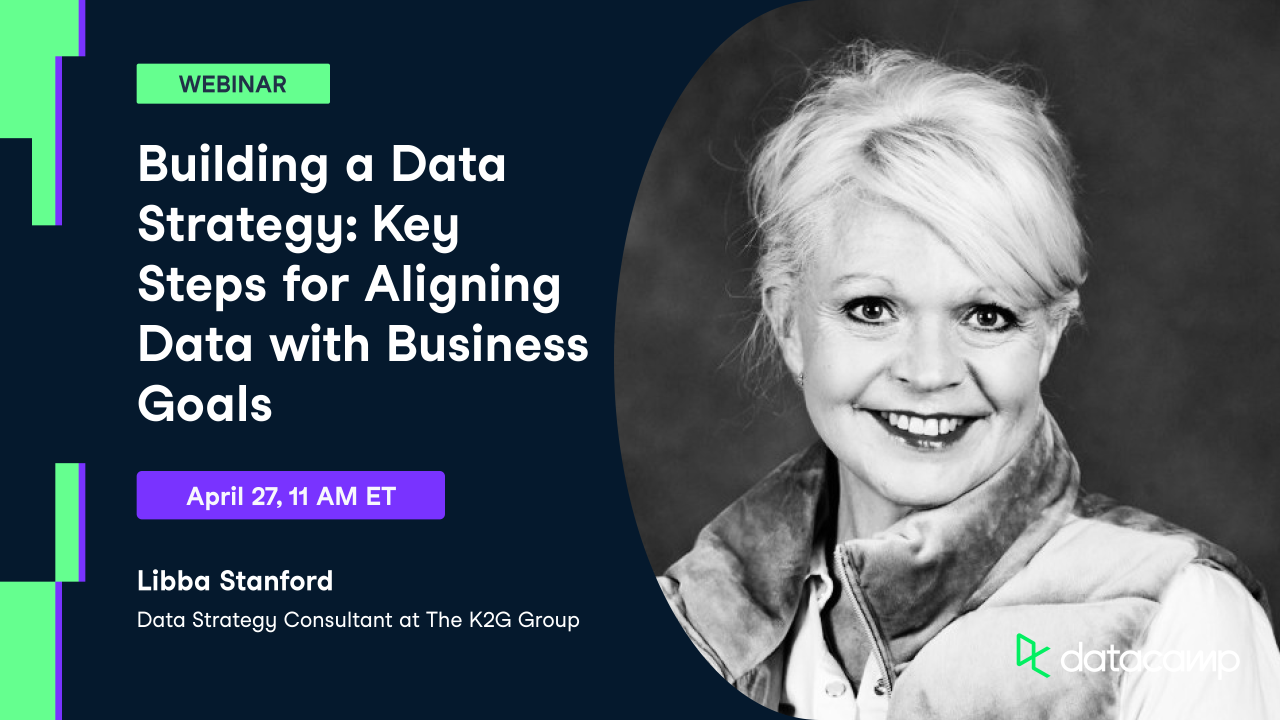Related
webinar
5 Things Every Business Leader Needs to Know About Data Strategy
Find out the 5 key aspects of data strategy across different industries.webinar
Crafting a Lean and Effective Data Governance Strategy
In this webinar, we will guide you through the nuances of developing a robust data governance strategy that drives value for your organization.webinar
How to Build the Business Case for Data Literacy
Learn practical strategies for building a business case for data literacy.webinar
Building an AI Strategy: Key Steps for Aligning AI with Business Goals
Experts unpack the key steps necessary for building a comprehensive AI strategy that resonates with your organization's objectives.webinar
Spreading Data & AI Literacy Across Your Organization
Learn how to devise a data and AI strategy that aligns with your business strategy, and how to combine technology and training to increase the data and AI literacy across your company for business success.webinar

